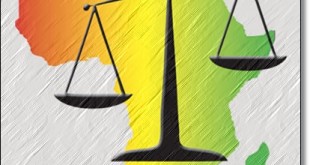The tension is rising… President Obama has agreed to see the Dalai Lama, the arms sale deal to Taiwan is nearly closed , the low Chinese currency rate debate is escalating, and now the Google censorship dispute may be going to the WTO tribunal (World Trade Organization) Quite clearly US –China relations are severely strained at the moment.
The battle really exploded in mid-January when Google’s management said itself and 30 other American companies had come under some very “hi-tech” attacks from hackers.
Those attacks were traced back to mainland China, Google executives were quoted as saying. Google has also been surveying a separate series of hacker attacks on Gmail accounts of many human rights activists working in China.
Google’s response was to make a surprise announcement that it does not want to continue to comply with unwelcomed Chinese internet censorship rules. Google has threatened to shut down it’s Google.cn search engine which is required by Chinese law to be self-censored US and international lawyers have stated, however, that the US may have a legal right to sue China at the WTO , a move that could pour more gasoline on an already blazing fire. The US Commerce Department has stated that “The recent cyber intrusion that Google attributes to China is troubling to the US Government.” Many lawyers feel the US could argue that China’s censorship in effect discriminated against foreign services such as Google, contrary to it’s commitments made under the General Agreement on Trade in Services (GATS).

If China forces more stringent internet censorship restrictions on Google than on local Chinese search engines, such as BAIDU, then Google may have a WTO discriminatory claim according to many international trade lawyers. The result of the case would depend on how a WTO arbitration board classified search engines. Much of the WTO laws addressing internet services and online products are still in a gray area. The last global trade agreement was negotiated in the early 1990’s when the technology boom was just taking off. Trade experts , however, said a succession of rulings had thwarted government’s ability to make a move, and particularly their ability to use national security or the protection of public ethics and morals as defense for censoring words and images on the web.
Gary Hollick, a leading international trade lawyer said, “ We will have to know a lot more about the facts, especially what the Chinese Government is doing, but the GATS has a lot of unexplored obligations which might protect Google.”
Websites in China are not permitted to publish content that can jeopardize the security of the nation, divulge state secrets or disturb the social order. This being said, many analysts believe that China would have no problem in shutting down an uncensored search engine. China law experts also feel the 700 Google employees in China could be severely prosecuted for not respecting the law.
China is currently treating the conflict as a business dispute and not political but Google has many US officials advancing their cause like Secretary of State Hilary Rodham Clinton who is fighting for freedom of expression on the internet.
Google is the number 2 search engine after Baidu Inc. in China’s market of 384 million internet users. Google generates between $200 million and $600 million dollars of revenue each year.
Despite these numbers, Google’s Chief legal Officer David Drummond said Google has a “new approach to China” which will certainly infuriate Chinese Authorities. China’s Government is extremely sensitive to international complaints about internet censorship in China. In November during a visit by US President Barack Obama, his obliquely worded criticism of Chinese online censorship was itself censored from official reports as if it were never said. If Google does close down it’s operations in China it would be the first large well known big name company citing freedom of speech as it’s reason in many many years.
Robert W. Curley, Jr.
English Language Consultant for Business Law
 Le petit juriste Site de la revue d'actualité juridique
Le petit juriste Site de la revue d'actualité juridique





